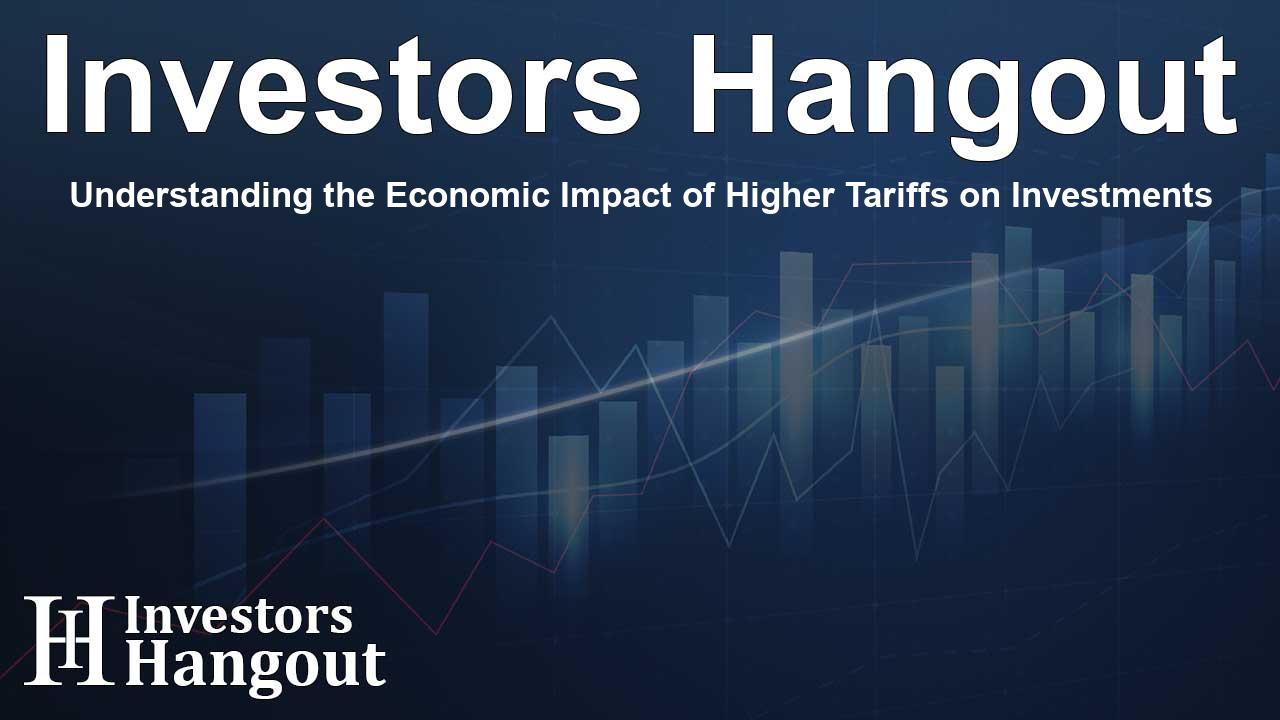Understanding the Economic Impact of Higher Tariffs on Investments

Implications of Increased Tariffs on the Economy and Investments
The potential reintroduction and increase of tariffs in the United States, particularly with an election approaching, raises important questions about how this will affect the economy and the investment landscape.
Understanding Tariffs
Tariffs are essentially taxes imposed on imported goods and have played a significant role in trade policies in recent years. They affect the pricing of imported products, leading to direct cost increases for both consumers and businesses. This brings up a crucial question: how do these tariffs impact our daily expenses and investment choices?
Inflation and Growth Concerns
Experts warn that implementing tariffs could result in higher inflation rates. For example, a universal 10% tariff on imports is expected to significantly elevate overall price levels in the economy. This inflationary effect is not merely a temporary spike; companies might take advantage of consumer expectations to increase prices even further.
Additionally, higher tariffs can suppress economic growth by reducing domestic consumption. The rising prices can disproportionately burden lower-income families, making essential goods less affordable. This situation could also hinder the competitiveness of domestic manufacturers that rely on imported materials, potentially leading to decreased economic activity and job losses.
Impact on GDP and Trade Relations
Forecasts suggest that implementing higher tariffs could negatively affect GDP. Under certain tariff scenarios, GDP could fall by as much as 1.5%. Moreover, the widespread application of tariffs could complicate supply chains, resulting in more serious economic consequences.
Increased tariffs often provoke retaliatory actions from other countries, which may further reduce global trade, creating a harmful cycle that impacts both consumers and businesses.
Effects on Investment Landscape
Analysts at UBS predict that rising tariffs could exert downward pressure on U.S. equity markets. A universal tariff might lead to a decline of about 10% in equity market values, particularly affecting sectors like retail, automotive manufacturing, and technology. While some industries, such as domestic steel production, may benefit, the overall market sentiment is likely to remain negative.
Federal Reserve's Response and Currency Impact
In response to the economic challenges posed by tariffs, the Federal Reserve is expected to take a cautious approach, potentially lowering interest rates to prevent a recession. Although tariffs may cause a short-term spike in inflation, their long-term impact could lead to decreasing interest rates as the Fed focuses on maintaining economic stability.
Investors seeking safety might gravitate towards government bonds, which could see yields drop to between 2.5% and 3% under universal tariff conditions.
Conclusion on Investment Strategy
The implementation of higher tariffs is not just an economic issue; it profoundly influences investments, consumer behavior, and the overall market environment. As we navigate these changes, understanding the implications of tariff policies is crucial for making well-informed investment decisions.
Frequently Asked Questions
What are tariffs and why are they implemented?
Tariffs are taxes levied on imported goods to make foreign products more expensive, encouraging consumers to purchase domestic products instead.
How do tariffs affect the economy?
Tariffs can lead to increased prices for consumers and a decline in domestic consumption, which may slow economic growth and result in job losses.
What impact do tariffs have on investment markets?
Higher tariffs can decrease equity market values and adversely affect specific sectors, while benefiting those that focus more on domestic production.
How does the Federal Reserve respond to higher tariffs?
The Federal Reserve may lower interest rates in response to economic slowdowns caused by tariffs to bolster growth and avert a recession.
What should investors consider with rising tariffs?
Investors should evaluate market conditions, sector vulnerabilities, and the broader economic outlook to guide their strategies as tariff policies evolve.
About The Author
Contact Dominic Sanders privately here. Or send an email with ATTN: Dominic Sanders as the subject to contact@investorshangout.com.
About Investors Hangout
Investors Hangout is a leading online stock forum for financial discussion and learning, offering a wide range of free tools and resources. It draws in traders of all levels, who exchange market knowledge, investigate trading tactics, and keep an eye on industry developments in real time. Featuring financial articles, stock message boards, quotes, charts, company profiles, and live news updates. Through cooperative learning and a wealth of informational resources, it helps users from novices creating their first portfolios to experts honing their techniques. Join Investors Hangout today: https://investorshangout.com/
The content of this article is based on factual, publicly available information and does not represent legal, financial, or investment advice. Investors Hangout does not offer financial advice, and the author is not a licensed financial advisor. Consult a qualified advisor before making any financial or investment decisions based on this article. This article should not be considered advice to purchase, sell, or hold any securities or other investments. If any of the material provided here is inaccurate, please contact us for corrections.
